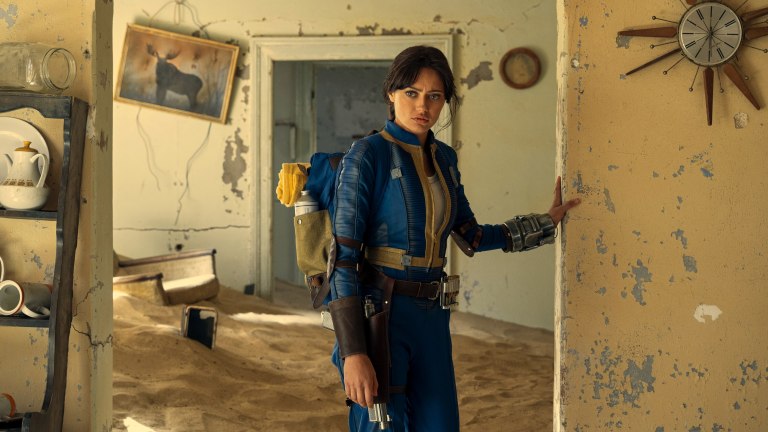The Fallout TV Series Tackles One Taboo Subject the Games Never Did
Exclusive: Fallout showrunners Geneva Robertson-Dworet and Graham Wagner reveal how the series tackles a post-apocalyptic subject not often mentioned in the games...

The Fallout series isn’t exactly known for pulling its punches when it comes to depicting the breakdown of civilization after a catastrophic nuclear war. Since the franchise’s debut in 1997, the games have tackled the many horrors that follow the end of the world: cannibalism, human sacrifices, and more than a few perverse experiments performed on Vault-Dwellers and Wastelanders against their will. But when it came time to make the Amazon TV series, showrunners Geneva Robertson-Dworet and Graham Wagner tapped into one particularly taboo subject the games hadn’t really covered before.
“When we delivered the pilot to Bethesda just to read, Todd [Howard]’s first comment was, ‘You know, we never really tackled the incest thing. That’s a good idea,’” Wagner tells Den of Geek magazine ahead of the show’s premiere, recalling the collaboration between the showrunners and executive producers Jonathan Nolan and Todd Howard, the creative lead of the Fallout game series.
While the games have hinted at the many… unseemly things humanity did to survive and prolong itself, both on the surface and inside the vaults, during centuries of nuclear fallout, it very rarely outright suggests it had to do with incest and inbreeding — although it’s easy to imagine how things could get a bit dicey with later generations of Vault-Dwellers who all descend from the same couple of families.
The showrunners acknowledge presenting this bit of world-building to Howard was certainly a risk and laugh now when considering the awkward way that first script read could have gone down.
“That obviously could’ve gone the other way. But [Howard] was just like, ‘Hats off, guys,’” Wagner says. “That was what made him really proud to be working with us,” Robertson-Dworet adds.
“[Todd] and Jonah are sort of ‘Yes, and’ sort of people,” Robertson-Dworet continues, recounting that she never felt forced to write to “their box” or create the show based on specific parameters set by Howard and Nolan. “They listen and they’re very receptive to things. They had their own ideas, which is great, but they don’t just outright nix things, which is pretty damn cool.”
The TV series isn’t an adaptation of one of the games, but an original story set in the same timeline. That meant the showrunners had the freedom to both craft their own story within this universe, while also referencing things from the games when it made sense.
“It’s more creatively interesting to be able to build our own story in the world that they’ve carved out for us,” Wagner says of their approach to adapting Fallout. “That’s historically been the trajectory of Fallout. It’s traded hands many times, with different creative teams taking it over. It’s kept it fresh, kept it relevant. We chose to just vainly look at this as our Fallout.”
But while the show adds new elements to the lore of Fallout — including a new vault, Vault 33 — one aspect of the games Wagner and Robertson-Dworet worked to preserve was the whimsical tonal shifts in the storytelling.
“The Fallout games are good at keeping it fun,” Wagner says. “I remember like, ‘Hey, things are harsh up here, let’s pop down to the vault and do something incredibly banal and quotidian.’ And those two things start to feed into each other. The violence seems more violent after being in this sort of placid underworld. The placid underworld becomes funnier because we just endured some hard shit up there and they’re down here talking about potatoes.”
It sounds like they may be doing more than just chatting about root vegetables down there, though…
Fallout hits Amazon Prime Video on April 10 at 9 pm ET/6 pm PT.
